Tag: Alexandria
-
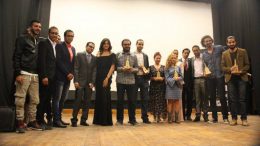
Alexandria Short Film Festival supports Arab independent filmmakers
Hosted by Alexandria’s Fine Arts Museum, one of the leading cultural and artistic landmarks of the city, the second round of the Alexandria Short Film Festival wasfew days ago. Twelve Arab countries, including Egypt, Syria, Iraq, Morocco, Sudan, Saudi Arabia, Tunisia, Palestine, and Algeria participated with 73 short films and documentaries. Under the honorary supervision…
-
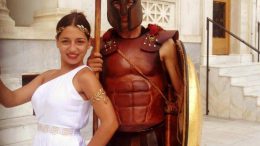
Greek Day celebrates culture, cuisine of Egypt’s Mediterranean neighbour
Greek culture has had a presence in Egypt for centuries, for as long as Greeks have been living in Egypt, particularly in Alexandria. Geographically, Egypt is close to Greece, and both Mediterranean countries have a lot in common. To mark Greek National Day, the Community Services Association (CSA), in cooperation with the Greek Cultural Center…
-
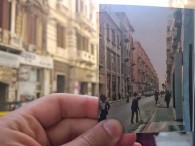
Photographers capture loss of Alexandria’s historic architecture over last 20 years
Photographers Mostafa Mamdouh and Abdallah Hanafy took to Alexandria’s decades-old streets with their cameras in a quest to display how time has taken its toll on the city’s historic landmarks over the last two decades. The photos document the replacement of beautifully-crafted buildings with modern, dreary towers between 1996 and 2016. Mamdouh and Hanafy collected…
-
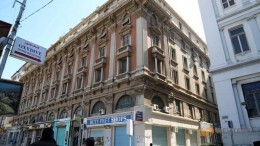
On Alexandria’s Fouad Street, some have a longing for the elegant past
Along Fouad Street, a Costa coffee shop near old buildings with Italian and French architecture reminds Egyptians that commercial ventures threaten to erase traces of Alexandria’s aristocratic past. ALEXANDRIA, Egypt: Along Fouad Street, a Costa coffee shop near old buildings with Italian and French architecture reminds Egyptians that commercial ventures threaten to erase traces of…
-
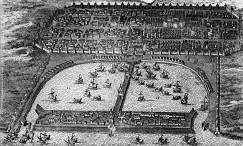
The story of cities: how Alexandria laid foundations for the modern world
The secret to Alexandria, if classical historians are to be believed, lies in a golden casket. Studded with jewels and small enough to hold in one’s hands, the casket was a war trophy found in the lodgings of vanquished Persian king Darius III more than 2,300 years ago. The man who defeated Darius, Alexander the…
-
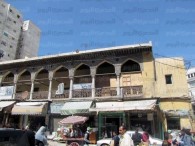
Alexandria’s ancient sites face extinction due to stalled renovation
Archaeological sites in Alexandria are facing ruin, with renovation projects by the Antiquities Ministry covering 13 ancient Islamic, Coptic and Jewish monuments stalled due to a shortfall in funding that stretches back many years. Eighty percent of the province’s sites, meanwhile, have not been touched by conservators for tens of years. Archaeologists have told Al-Masry…
-
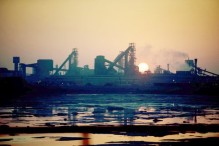
Plan to restructure Alexandria Port to be delivered in Q1 2016: Minister of Transport
The Port of Singapore is expected to complete its plan to restructure the Alexandria Port’s administration during the first quarter (Q1) of 2016, according to the Minister of Transportation Saad Al-Geioushy. The Port of Singapore is developing a comprehensive plan to reform Egypt’s ports. Alexandria Port is the first port to be addressed in this…
-

Alexandrian Cosmopolitanism: An Archive
Hala Halim, Alexandrian Cosmopolitanism: An Archive. New York: Fordham University Press, 2013. [This review was originally published in the most recent issue of Arab Studies Journal.] Hala Halim’s book is a provocative and erudite study of the modern European literary discourses that have constructed Alexandria as the exemplary site of what we might call cosmopolitan desire. Following…
-
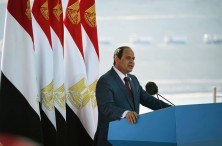
New Provincial Governor in Alexandria
Egypt’s President Abdel-Fattah El-Sisi appointed on Saturday 11 new provincial governors. The governors were appointed to the governorates of Alexandria, Suez, Gharbiya, Kafr El-Sheikh, Aswan, Port Said, Sharqiya, Minya, Giza, Qalyoubiya and Beni Suef. Below are brief descriptions of the appointees, five of whom are from police ranks, four from the Armed Forces and two are civil…
-
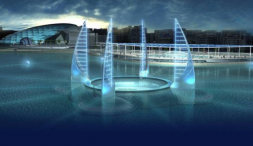
Egypt holds its breath for development of underwater museum
Egyptian Minister of Antiquities Mamdouh al-Damaty announced Sept. 9 that his ministry is planning to develop an underwater antiquities museum — the first of its kind in the world. The museum would be located in Alexandria governorate and would showcase the ancient Egyptian civilization. The project is estimated to cost $150 million. “The museum will reshape…